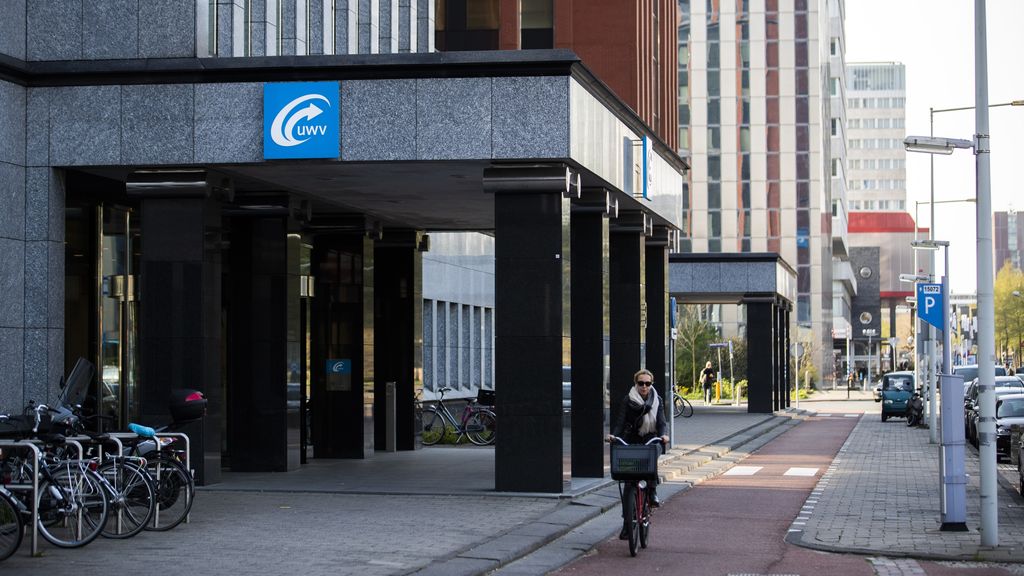UWV Scandal: Dutch Government Agency Caught in Possible Fraudulent Practices, Defrauding Hundreds of Citizens

UWV Under Scrutiny: Allegations of Possible Fraud Involving Disability Assessments Affecting Hundreds of Citizens
The Employee Insurance Agency (UWV), the Dutch government body tasked with managing unemployment, sickness, and disability benefits, is facing serious allegations of misconduct in its handling of disability assessments. Recent reports suggest that efforts to reduce long waiting lists may have led to substandard evaluations, potentially resulting in incorrect benefit decisions that could defraud hundreds of citizens by denying them rightful support or improperly granting benefits. Adding to the controversy, there are indications that UWV employees, particularly insurance doctors, may have been rewarded with hundreds of thousands of euros for conducting assessments that resulted in wrong decisions disfavoring applicants, incentivizing speed over accuracy in a system already strained by backlogs. This comes amid a history of complaints against the agency, highlighting ongoing systemic issues that have eroded public confidence in the social security system.
Alleged Incentive Scheme and Its Potential Consequences
Central to the allegations is an overtime incentive program introduced by UWV to address persistent backlogs in arbeidsongeschiktheidsbeoordelingen (disability assessments). The scheme reportedly allowed insurance doctors and labor experts to earn additional compensation for processing extra cases, with particular activity noted in the Heerlen office. Over two years, this initiative handled nearly 12,000 dossiers, including transfers from other regions.
Critics argue that the program created a perverse incentive prioritizing speed over thoroughness, possibly leading to "short-sighted" assessments. Reports indicate that some evaluations were conducted solely via telephone, and in certain cases, even from abroad—practices that may violate Dutch legal requirements for in-person assessments, as established by the Centrale Raad van Beroep. Wim van Pelt, chairman of the NOVAG, has expressed concerns, stating that such remote evaluations from locations like Bonaire are unacceptable and that the UWV has not adequately addressed these issues.
Financially, the overtime scheme is said to have cost UWV more than 12 million euros over two years. There are indications that some doctors may have earned amounts exceeding the Balkenende-norm, a public sector salary cap tied to the prime minister's earnings (over 200,000 euros annually). Van Pelt noted the improbability of doctors producing two to three times their normal output without compromising quality, suggesting that rushed assessments could be the explanation. In this context, employees may have been rewarded with hundreds of thousands of euros for making wrong decisions that disfavored applicants, such as hastily denying benefits to clear cases quickly.
If these allegations hold true, citizens may have been adversely affected. Some individuals reportedly faced long travel distances for assessments that were hastily conducted, while others received decisions based on incomplete reviews. This could mean that eligible claimants were possibly denied benefits, leading to financial hardship, or that benefits were granted erroneously, straining public resources. UWV has acknowledged potential "quality risks" and committed to improvements for more consistent service.
Potential Impact on Citizens: Risks of Erroneous Decisions
The possible fraud stems from negligent practices that may have led to unfair outcomes for hundreds of people, particularly in regions like Heerlen. With disability assessments affecting vulnerable populations, including those with chronic conditions, flawed evaluations could exacerbate poverty and health issues. Experts estimate that the backlogs and rushed processes might have impacted tens of thousands nationwide, with specific complaints highlighting denials for conditions like long COVID or ME/CVS despite evident needs. Recent audits reveal that only about 52-58% of assessments were accurate, with a significant portion completely wrong, often resulting in decisions that disfavor applicants by underestimating their disabilities.
Historical Context: Ongoing Complaints and Prior Issues with UWV
These recent allegations build on a long pattern of dissatisfaction with UWV. A 2022 report by the Socialist Party (SP), *Ziek van het UWV*, gathered 1,200 complaints, scoring the agency's performance at 2.1 out of 10 overall and 1.6 for problem resolution. Common issues included unjust benefit reductions (71% of respondents), excessive delays, and errors causing large repayment demands. The report advocated for decentralizing UWV into smaller offices, compensating victims of mistakes, and reforming disability insurance to close coverage gaps.
In April 2025, the Netherlands Court of Audit reported that tens of thousands of WIA benefits may have been miscalculated from 2020 to 2024 due to inadequate error detection and complex regulations. UWV plans to review 43,000 cases, anticipating corrections totaling 53 million euros and overall costs of 58 million euros. The audit recommended simplifying WIA rules to prevent future issues.
Additionally, in 2023, UWV was found to have unlawfully collected data on benefit recipients by tracking IP addresses and cookies to detect fraud related to overseas stays, violating privacy laws. This led to 3,600 investigations and 460 adjustments before the practice was stopped. The agency apologized, citing conflicting legal advice, while critics like the FNV union labeled it discriminatory.
Advocacy groups have also raised alarms about assessments for specific conditions. A 2024 report by Long Covid Nederland and PostCovid NL indicated that evaluations for long COVID patients were inadequate in about three-quarters of cases, potentially leading to under-recognition of symptoms. Social media and patient forums continue to echo frustrations over denials for chronic illnesses like fibromyalgia and CVS.
Further scandals include errors affecting thousands of youths with disabilities, with an internal audit showing only 58% accuracy in decisions, and problems dating back to 2006, leading to a top executive's resignation amid calls for compensation.
Demands for Investigation and Reform
As allegations of possible fraud mount, calls for accountability grow louder. Van Pelt emphasized the need for careful administration of the 30 billion euros in annual benefits, stating that both individuals and society deserve rigorous processes. With UWV promising internal reviews and enhancements, stakeholders urge independent investigations to verify the extent of any misconduct and ensure reforms prevent future lapses. Until resolved, these issues risk further undermining trust in the Netherlands' social safety net.
